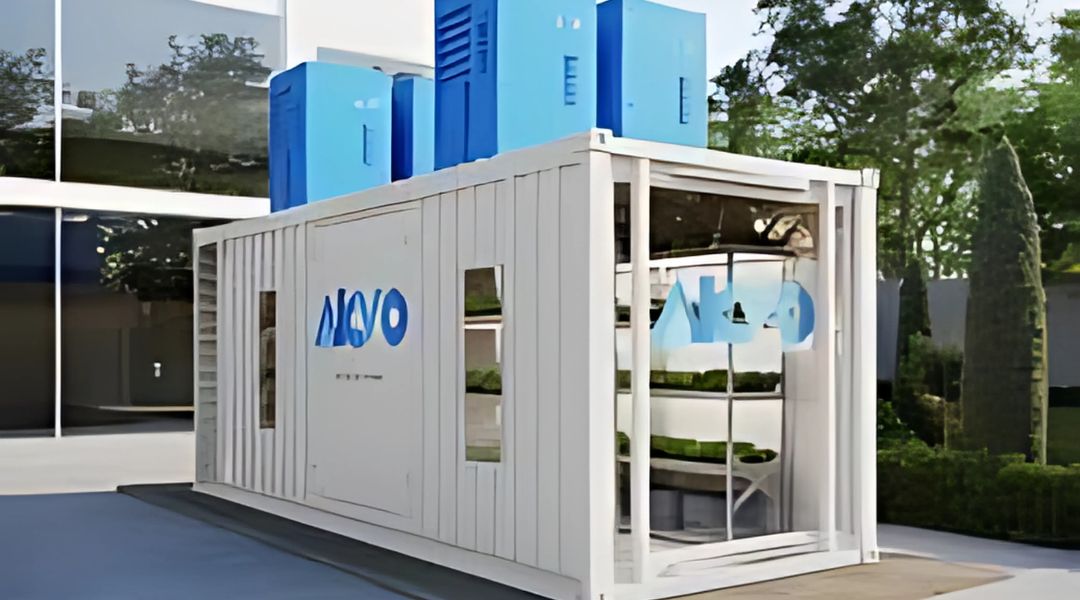
The traditional reliance on groundwater and river systems is proving inadequate and unsustainable
Many forward-thinking corporates are early adopters of AWG technology, utilizing it to meet their sustainability goals while also curbing costs on drinking water for their workforce. This adoption underscores the practical and economic benefits of AWG
India’s relentless quest for sustainable water resources in the face of escalating scarcity and pollution finds a promising ally in Atmospheric Water Generation (AWG). This innovative technology, which extracts potable water directly from the air, is revolutionizing how we access and ensure water sustainability.
The need for sustainable water solutions:
With urban centres burgeoning and climatic irregularities becoming the norm, the traditional reliance on groundwater and river systems is proving inadequate and unsustainable. The pressing demand for clean water in densely populated and industrial regions is increasingly at odds with the finite and often contaminated natural water supplies.
Science behind atmospheric water generation:
Atmospheric water generation stands out by tapping into the air’s humidity – a vast, underutilized resource. The process is elegantly simple yet profoundly impactful:
1. Air filtration: Initially, air is drawn into the AWG unit, filtering out dust, pollen, and other particles.
2. Condensation: This clean air is then cooled to its dew point, transforming water vapor into droplets.
3. Purification and mineralisation: Finally, these droplets are purified and potentially enhanced with essential minerals, ensuring that the water is both safe and nourishing.
Atmospheric water generation, the game-changer:
Sustainability and scalability: AWG can run on renewable energy, aligning with global carbon reduction goals. The scalability from personal units in homes to larger systems for industrial applications illustrates its versatility, catering to various needs without depleting natural resources. Also Read – Vembu slams ‘Liver Doc’ for calling him ‘health illiterate boomer uncle’
Uncompromised quality: The resultant water is purer than most natural sources, reducing reliance on chemical treatments and promoting health.
Early adoption by corporates: Many forward-thinking corporates are early adopters of AWG technology, utilizing it to meet their sustainability goals while also curbing costs on drinking water for their workforce. This adoption underscores the practical and economic benefits of AWG, making it an attractive option for businesses aiming to enhance their operational sustainability. As these companies integrate AWG into their daily operations, they not only contribute to environmental conservation but also establish a blueprint for others in the corporate sector.
Bringing AWG to life in India: In India, AWG’s potential is particularly significant. It can transform rural areas with limited infrastructure by providing reliable access to clean water, or support urban centers with supplementary supplies, ensuring resilience against shortages. Industries requiring high-quality water, like pharmaceuticals and food processing, could see substantial benefits, enhancing both their sustainability and operational reliability.
Looking ahead: The traction AWG is gaining in urban areas signals a robust trend for the next few years, with more businesses and residential complexes likely to adopt this technology. As promising as AWG technology is, it faces hurdles like dependence on specific climatic conditions and the initial costs and energy requirements. However, ongoing advancements and increasing scale are likely to diminish these barriers, making AWG a cornerstone of India’s strategy to overcome its water challenges.
In line with the Swachh Bharat Abhiyan and other sustainability initiatives, embracing AWG could place India at the forefront of global water management innovation.
The path forward will involve not only adopting but also adapting this technology to meet local needs and conditions, setting a precedent for others to follow in the pursuit of a sustainable future.
Discover more about how AWG technology is revolutionizing sustainable water solutions in India by reading the full article here.
(The writer is the founder and CEO of Akvo)
